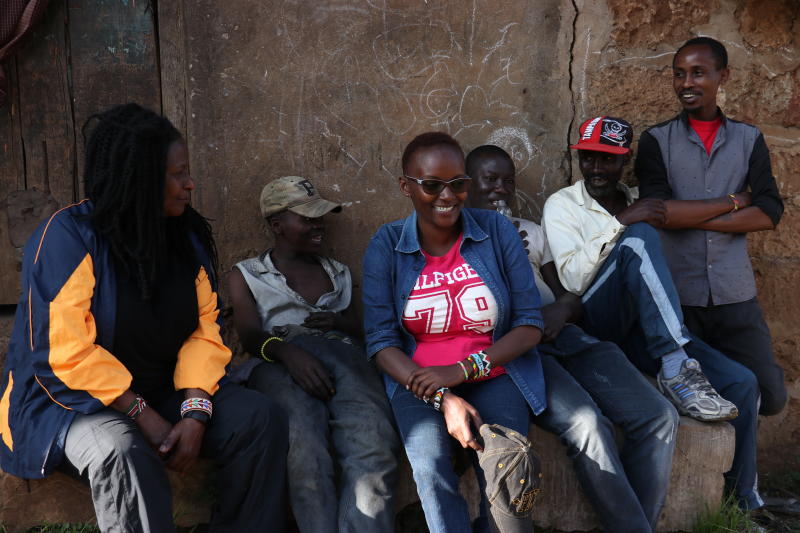×
The Standard e-Paper
Smart Minds Choose Us

Writer Jayne Rose with Learn From the Streets community tourism trainer Faith Gikunda, Master and Commandos. [Jayne Rose Gacheri, Standard]
It is a bright Sunday morning in Meru town. It is the day of the week that street families, aka Commandos of Meru town, look forward to. It is a day that they assemble at Nteere Park Meru to receive gifts, get medical attention, play, and interact with other families.